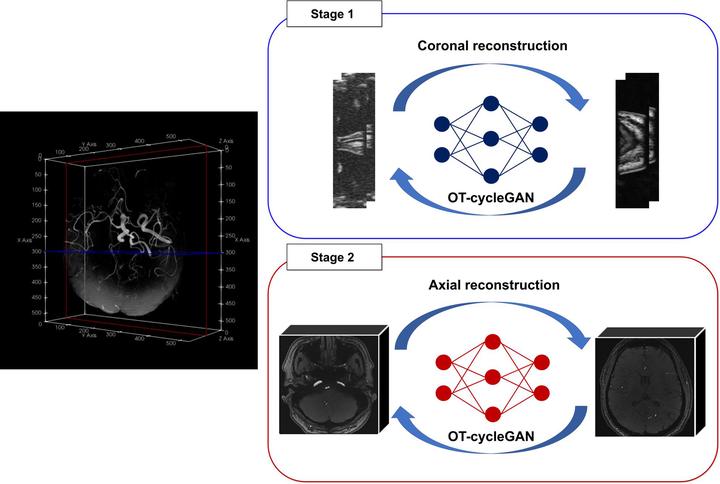 Image credit: Hyungjin Chung
Image credit: Hyungjin ChungAbstract
Time-of-flight magnetic resonance angiography (TOF-MRA) is one of the most widely used non-contrast MR imaging methods to visualize blood vessels, but due to the 3-D volume acquisition highly accelerated acquisition is necessary. Accordingly, high quality reconstruction from undersampled TOF-MRA is an important research topic for deep learning. However, most existing deep learning works require matched reference data for supervised training, which are often difficult to obtain. By extending the recent theoretical understanding of cycleGAN from the optimal transport theory, here we propose a novel two-stage unsupervised deep learning approach, which is composed of the multi-coil reconstruction network along the coronal plane followed by a multi-planar refinement network along the axial plane. Specifically, the first network is trained in the square-root of sum of squares (SSoS) domain to achieve high quality parallel image reconstruction, whereas the second refinement network is designed to efficiently learn the characteristics of highly-activated blood flow using double-headed max-pool discriminator. Extensive experiments demonstrate that the proposed learning process without matched reference exceeds performance of state-of-the-art compressed sensing (CS)-based method and provides comparable or even better results than supervised learning approaches.